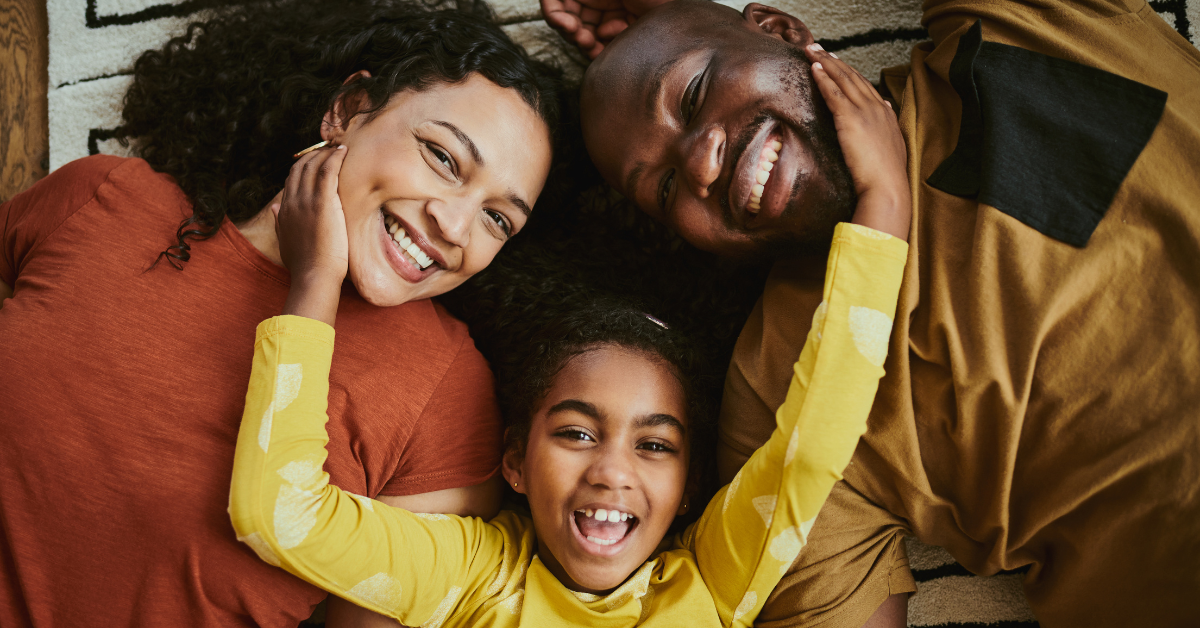.webp)
Talking About School Shootings with Kids: A Parents' Guide
As parents, we have all had the pit in our stomachs regarding how to guide our precious kiddos through all-too-familiar crisis points. Talking with children about school shootings is one of the hardest conversations a parent can face. It is important to honor our fears as caregivers, but avoiding the topic altogether can leave children with confusion, fear, or misconceptions.
I will never forget the night I was tucking my kindergartner into bed after a few weeks of school. It had been so much fun picking out dresses and new sneakers, pens and markers, preparing for the school year ahead with excitement and expectation. That night she told me that they had played hide-and-seek at school, huddling in the bathroom pretending to hide from a bad guy. My body became tense and I held my breath. I wasn’t ready for this! The age of school shooter drills was upon us and I now had an obligation to set the tone and choose the narrative of how our family would address this topic. Through my research for my own family, I have found some key principles that may benefit yours too.
Here is a practical, research-based guide you can adapt depending on your child’s age, personality, and what they’ve heard already. You may be surprised at how empowering it can be for you and your child to intentionally connect in the midst of the chaos.
tips for tough conversations at Any Age
- Be honest, but age-appropriate: Use simple, clear language and avoid graphic details or speculation. We call this being the “sturdy pilot”. If kids sense your tone is scared or uncertain, they will match your energy. Pass out the peanuts and keep a calm but firm tone, just like a flight attendant during turbulence.
- Lead with listening: Ask what your child has heard or thinks and let them express their feelings. This gives you an excellent foundation to build upon. You may be surprised at how much they know through osmosis.
- Validate emotions: Acknowledge feelings like fear, sadness, or anger and reassure them these are normal. Our feelings are a gift that lead us to take action, like preparation and seeking community support with family and peers.
- Offer reassurance and stability: Emphasize what’s being done to keep them safe and your role in protecting them. You do not have to promise that everything will be fine for the end of time but you can manage anxiety by reiterating the facts.
- Monitor media exposure: Limit news or social media that might increase anxiety or misinformation. A line to remember: “Children are the best recorders and the worst interpreters.” Be aware if the news is scrolling on and on in the living room during family time, being mindful of what is pulled up on your cell phones when a kiddo is looking over your shoulder, and managing their devices to track Google history searches should you be concerned about their level of engagement with the crisis media.
- Empower, don’t scare: Highlight how students can stay safe, such as reporting concerns or following safety drills. Identify staff members that a child has a positive relationship with and underscore their dedication to keeping the school safe and secure.
- Revisit the conversation: Check in periodically since kids’ understanding and emotions may evolve. This is not a one-and-done discussion. Looping back lets your child know you are not scared of the topic and can handle their progression of thoughts and feelings.
- Know when to seek help: If anxiety, nightmares, or behavior changes persist, reach out to a counselor for additional support.
sample conversation starters
- “What have you heard about what happened?”
- “It’s okay to feel scared or sad. How are you feeling about it?”
- “You can always talk to me if something worries you.”
- “Let’s think together about what helps you feel safe.”
things to avoid
- Overloading with graphic details
- Dismissing or minimizing feelings
- Making unrealistic promises of safety
- Avoiding the topic altogether
- Showing visible panic or anger during the discussion
Additional options for Support
- Review school safety plans together to demystify drills.
- Connect with school counselors for more help.
- Seek professional help if distress persists.
Explore age-appropriate books and resources on coping, like these:
What To Do When the News Scares You: A Kid’s Guide to Understanding Current Events
“I’m NOT Scared, I’m Prepared!”
If you could use some support in starting these conversations, or if your children are still struggling to process feelings of anxiety or fear, consider reaching out to connect with a therapist near you. Lifeologie Counseling offers a variety of therapeutic approaches for children, tweens, teens, and parents.
Click here to find a creative, collaborative Lifeologie Counseling therapist near you!

About Noel Baker
Noel Baker, LPC-S, specializes in anxiety, eating disorders, adult children of addiction and codependency, and postpartum recovery. In addition to her work at Lifeologie Counseling Rockwall, Noel loves to share the gifts of yoga and meditation with her community.
Meet Me



